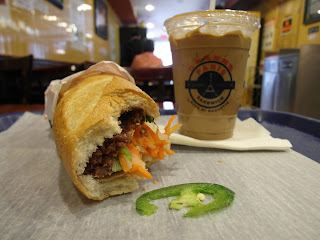So, as you know, I'm pretty obsessed with the
Flour
Cookbook right now. Joanne Chang says that her magic ingredient is Creme Fraiche. When I lived in NY and was feeling fancy (which, let's face it, was
all the time) I would buy creme fraiche, whip it with some sugar and eat them with strawberries. I don't know why I felt that this was necessary. Maybe it made me feel like I was living in a magical world like Amelie and not in a tiny apartment with a rat named Stuart above a pizza joint.
In any case, I like to stay true to recipes so that I can blame the recipe and not myself if things don't work out. Creme Fraiche is not sold in Japan. At least not in any of the 7 grocery stores I checked this week. So, I googled around and learned that it is really easy to make at home and only takes about 24 hours. In theory. It took me about 7 days, 7 cartons of heavy cream and a lot of experimenting. Why?
1. Because I am not my mother or Alton Brown, and don't know the slightest thing about food sciences.
2. Because I live in Japan and am limited in my ingredient acquisition.
Round 1: Buttermilk and Heavy Cream
The most common recipe for Creme Fraiche (online at least) is to add 2 tablespoons of buttermilk to a cup of heavy cream and let it sit at room temperature for 1 to 3 days. Easy enough. Buttermilk is not sold in Japan, but I also learned from ABC Cooking School friend and various online resources that you can easy make it at home.
How to Make Buttermilk:
Just add 1 tablespoon of white vinegar to a measuring cup, then add milk until you reach the 1 cup line. Let it stand for 5 minutes, and you have buttermilk!
Sort of. Actually, this will give you a very good buttermilk substitute. There are no live active cultures in it, which is not necessary for making delicious buttermilk pancakes and biscuits, but definitely necessary for making creme fraiche. Unfortunately, I learned this the hard way when I realized that the heavy cream I left out for a day was still very runny, a little curdled and super rancid.
Round 2: Buttermilk Powder
This round didn't actually last long because I was wise enough to google the answer before wasting another carton of heavy cream. I found buttermilk powder, another good buttermilk substitute for baking, at a
kitchen supply shop in Shinjuku. Again, no active cultures thus, no creme fraiche.
Round 3: Sour Cream vs Yogurt
I finally wised up and did some hardcore forum trolling. Though buttermilk + heavy cream is the more popular method, you can also make creme fraiche with heavy cream + sour cream and heavy cream + yogurt. Sour Cream and yogurt are both readily available here, so this seemed like a positive turn in my quest for this stupid cream.
The players. On the left, 1 cup of heavy cream and 2 tablespoons of sour cream. On the right, 1 cup of heavy cream and 2 tablespoons of plain yogurt with active cultures.
So, how'd it all work out? On the left, the sour cream version. On the right, yogurt. They both thickened up quite a bit, even after a few hours. The sour cream version was by far more flavorful, creamier and most resembled creme fraiche. The yogurt kind was passable, but kind of a loser.
So there it is! Sour cream wins and I can now sleep at night. I read while I was at the bookstore today, that Julia Childs preferred homemade creme fraiche made with sour cream to that made with buttermilk because it was less tangy. I'm ok with tang, but if it's what Julia prefers, that just makes it all the better.
How to Make Creme Fraiche in Japan (or anywhere you can find Sour Cream)
1. Heat 200ml (1 cup) of heavy cream (35% fat or more) on low heat just take the chill off.
2. Add 2 tablespoons of sour cream to a jar, cup or bowl. Add about 1/4 cup of the warmed cream to the jar and mix until smooth. This works out all the clumps of the sour cream. Using just a little cream makes it easier (and cleaner) to mix vigorously. Then add the rest of the cream.
3. Cover loosely with saran wrap, a tea towel or jar lid. Place in a warm spot for 24 hours. I chose the top of the fridge because I read somewhere that this is the warmest place in your kitchen. Another good spot would be your oven with the oven light on. Mix every 6-8 hours if you can.
4. After 24 hours, it will be much thicker. Give it a good mix, then cover properly and put it in the fridge for another 24 hours. It will thicken up more in the fridge and can be used immediately. I don't know how long it will keep, but I imagine 4-5 days. Just be smart about it - you know bad dairy when you smell it.
 cookbook. Out of all the scrumptious, buttery, American looking things in the book, the first one I wanted to make most was the Bran Muffins. I need to eat hearty and healthy meals for my weekly runs and this recipe just called out to me. They didn't disappoint.
cookbook. Out of all the scrumptious, buttery, American looking things in the book, the first one I wanted to make most was the Bran Muffins. I need to eat hearty and healthy meals for my weekly runs and this recipe just called out to me. They didn't disappoint.















































